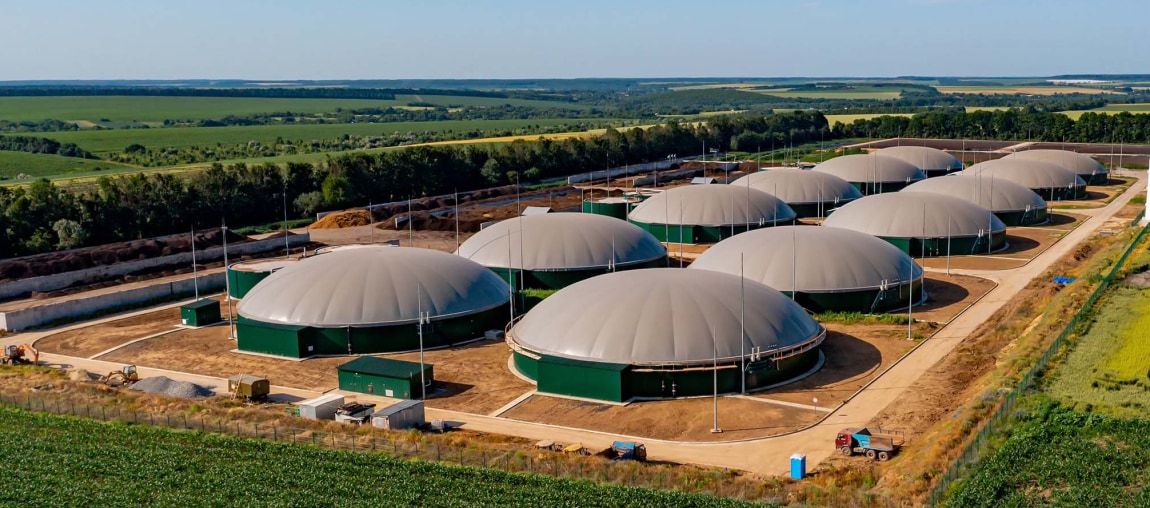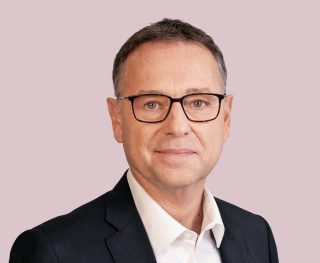Responsible savings and investments
In choosing to invest their money responsibly, citizens and economic actors help to finance projects and companies that are working toward preserving the environment and reducing social inequalities.
What are responsible savings and investments?
Saving and investing responsibly means putting your money in investment vehicles that will support companies working towards concrete solutions in addressing environmental and social challenges, or, which at least, take environmental, social and governance (ESG) criteria into account.
A growing need for societal utility
While BNP Paribas customers pursue their own goals – putting their money to work for them, preparing for retirement, starting up or expanding a company – a growing number feel the need to save and invest in a sustainable future.
Speeding up our projects in favour of responsible investment
BNP Paribas has been a pioneer in this area since 2006. In recent years it has picked up the pace in its development of responsible savings and investment solutions.
The Group reorganised in 2021 to speed up its responsible approach, pooling its business lines and experts in protection, savings and investment within a single division, called “Investment & Protection Services(Opens in a new tab)(Opens in a new tab)(Opens in a new tab)”. Its goal is to strengthen the development of innovative solutions around savings and responsible investments and to enhance services provided to its customers.
The Group strengthened its private asset investment activity (unlisted assets) in December 2022 by creating a Private Assets business unit within BNP Paribas Asset Management, bringing together experts from different business lines, with the ambition of becoming a European leader in responsible and sustainable private assets.
BNP Paribas has also launched a tranvsersal and agile programme to become the benchmark bank in Europe for responsible savings. In particular, this initiative accelerates the development of tools and pathways to offer clients in Europe a pro-active advisory approach to advice on savings and investment choices, centered on their life projects, taking into account their profile, responsible investment preferences and market trends.
Making responsible investments accessible
Simplified offerings and funds
Individual customers may choose to subscribe to responsible investment funds alongside traditional funds, within their life insurance policy, securities account, shareholder savings plan, employee savings plan or retirement savings plan. Customers are guided by their financial advisor based on their convictions, their environmental impact and/or social goals (such as the environmental transition, biodiversity, universal healthcare, etc.) and the normal investment criteria, such as level of risk, investment horizon, etc.
Meanwhile, BNP Paribas has structured its range of responsible funds into 3 main categories:
- funds with ESG integration, that take into account environmental and/or social criteria
- certified funds, that have received one or more European sustainable investment labels
- funds with a sustainable investment objective, classified under Article 9 of the SFDR (sustainable thematic funds, for example).
The Group's asset manager, BNP Paribas Asset Management, which designs investment funds and manages the assets entrusted to it, places sustainability at the heart of its strategy and investment decisions by integrating environmental, social, and governance (ESG) criteria into a significant portion of its asset management.
At the end of 2024, BNP Paribas Asset Management managed 16 billion euros of assets in its range of open-ended funds domiciled in Europe that have a sustainable investment objective (classified as Article 9 according to SFDR).
A wide range of sustainable thematic funds
BNP Paribas Asset Management offers investors (both individuals and institutionals) thematic funds with a sustainable objective such as BNP Paribas Aqua, BNP Paribas Climate Impact, BNP Paribas Energy Transition and BNP Paribas Green Bond.
BNP Paribas Asset Management also creates and manages numerous real estate funds for different types of investors. The entire range of open-ended funds for retail investors is classified as Article 8 or Article 9, according to the Sustainable Finance Disclosure Regulation (SFDR). Most of these funds also have a label: Social Responsible Investment (SRI) or Finansol.
As an insurer and institutional investor, BNP Paribas Cardif has long been convinced that it is essential to manage the savings of its policy holders by combining financial performance and positive impact on society. Since 2008, the insurer has integrated into its investment choices, for its life insurance and retirement savings plans, criteria that evaluate the environmental impact, social practices, and governance of companies (ESG criteria). Restrictions or exclusions are also applied to sensitive sectors, and a carbon filter allows for the analysis of the level of emissions (in tons of CO2 equivalent) and the maturity of the energy transition strategies of the companies in which the company invests. In 2024, 96% of its general France funds were subject to ESG analysis.
In 2024, 3 billion euros of positive impact investments were made, which corresponds to an average of 2 billion euros per year since 2019.
of positive impact investments have been made on average each year by BNP Paribas Cardif since 2019.
350 million euros in own-account investments for ecological transition and social inclusion
As part of its own-account investments, the Group has allocated a total of 350 million euros by end 2025 to invest in startups and companies that put in place innovative solutions for the ecological transition, natural capital, local development and social impact.
- €200 million allocated in impact companies(Opens in a new tab)(Opens in a new tab)(Opens in a new tab)(Opens in a new tab) that implement innovative solutions in three areas: local development and climate; social inclusion and solidarity; the protection ans restoration of natural capital.
- €150 million allocated in startups of the energy and ecological transition, including €86 million committed in the BNP Paribas Solar Impulse Venture Fund (for BNP Paribas' own account). ,This fund was created in 2021 with the Solar Impulse Foundation to finance startups of the ecological transition in Europe and North America, with the aim of accelerating their development and scale change. It has reached a final size of €172 million (half of wich is invested bay BNP Paribas for its own account) and is open to third-party investors - institutional investors, large corporates and private banking clients of the Group (BNP Paribas Welath Management).
These envelopes are managed for the Group's own account by the teams of the Investment & Protection Services division, with the exception of the €200M envelope allocated to impact investments, which is co managed with the Group's CSR teams.
Read an example of impact investingSupporting corporate customers and institutional investors
BNP Paribas’ Investment & Protection Services and Corporate & Institutional Banking teams offer responsible investment and financing solutions for institutional investors and large corporate clients. CIB is at the heart of transforming the global economy through its responsible financing and investment solutions, such as Bonds and Loans incorporating sustainability criteria: Green, Social and Sustainable bonds or loans; and sustainability-linked bonds (SLBs) or sustainability-linked loans (SLLs).
Two CIB 2024 landmark deals:
- The Republic of Iceland, supported by BNP Paribas, issued in 2024 the first green bond of 750 million euros (over 10 years, maturing in 2034), in order to continue financing the country's transition towards carbon neutrality.
- Pandora issued a sustainable development-linked bond (SLB) in 2023 for an amount of 500 million euros including a key performance indicator linked to the increase in the recycled silver content in its jewelry - a performance that was achieved the following year. BNP Paribas was joint bookrunner of the deal.
How can we know funds are truly responsible?
Sustainability certifications
About a dozen official European labels certifying that funds are invested sustainably have been established in the past 15 years. They are sanctioned by public authorities in various countries and are awarded to funds that meet precise specifications, based on strict inspections conducted by independent bodies.
Some examples include European certifications like SRI, Towards Sustainability, Nordic Swan, LuxFLAG ESG, FNG-Siegel, Umweltzeichen; and specialised certifications such as Finansol, which covers solidarity-based savings in France, and GREENFIN, which covers investment funds contributing actively to financing the energy and environmental transition.
at BNP Paribas Asset Management are certified with a European responsible label
representing 135 billion euros in assets under management as of the end of December 2024.
BNP Paribas’ ESG ratings
ESG ratings assess companies on the basis of environmental, social and governance (ESG) criteria and allow asset managers to choose the most responsible of them in putting together their portfolios of investment funds. The ratings are done by specialised ratings agencies based on an analysis of public data and technical questionnaires. To go further, BNP Paribas Asset Management teams have developed their own, four-stage methodology, a more in-depth ESG process to quantify these data, with:
- Selection and weighting of each company’s ESG indicators;
- An ESG evaluation vs. peers;
- A qualitative evaluation;
- Final ESG ratings of companies in the investment funds.
The Clover evaluation: an internal analysis of the responsibility of financial instruments
Created by BNP Paribas Wealth Management in 2010, the Clover evaluation is an analysis aiming to assess the responsibility level of financial products offered to its clients, by asset class, whether they are created by BNP Paribas or only recommended by BNP Paribas. Each product is placed of a scale from 1 to 5 Clovers: BNP Paribas Wealth Management considers a product to be eligible to a responsible portfolio if it obtains 3 or more Clovers. The evaluation provides further insight into the level of responsibility of recommended products in addition to current regulations on sustainable finance. The Clover evaluation is integral to how BNP Paribas Wealth Management fulfils its role as a financial advisor to its clients.
SFDR, the first European regulation covering sustainable finance
With the introduction in 2021 of the Sustainable Finance Disclosure Regulation (SFDR), financial institutions are now required to provide investors with information on environmental and social issues.
How to verify the environmental or social impact of investments?
BNP Paribas measures and publishes the ESG scores of its funds, the CO2 footprint of its funds, the social impact of its solidarity-based funds, the contribution of its solidarity-based partners to the UN’s Sustainable Development Goals (SDGs), as well as the biodiversity footprint of its portfolios.
Meanwhile, BNP Paribas Asset Management’s teams are working actively towards establishing new impact-measurement standards, particularly for its portfolio’s water and forest footprint.
BNP Paribas’ reports are as concrete as possible. For example, if an individual has invested in an energy transition fund, he or she will know at year-end what CO2 emissions savings her money helped achieve, expressed in easy-to-understand language.
Dedicated experts and teams trained to better serve our customers
The Group is constantly developing and transforming itself in-depth in order to offer its customers the best responsible investment solutions and dedicated assistance.
Here are some examples of actions and resources it has implemented:
- The implementation of ESG champions to accompany customer advisors
A network of over 150 ESG champions was set up in 2018 by BNP Paribas Asset Management. As a relay to the Sustainability Centre, they provide the sales teams with the necessary information and updates to assist their customers efficiently.
- Cutting-edge training provided on a regular basis to employees in charge customer relations and developing our products
It includes our responsible investment solutions, our technological assistance tools and our ESG methodologies.
- A training platform programme dedicated to sustainable finance for the Group's 178,000 employees
Called the ‘Sustainability Academy,’ this platform brings together training, information and tools that can be useful for everyone or focused on precise subjects depending on the user’s role. Updated regularly, this content enables Group employees to deepen their knowledge of sustainable finance, the challenges of the ecological and just transition; it allows them also to better understand our sustainable approach, as well as the dedicated products and services offered by the Bank.
Its goal: to accelerate the incorporation of sustainable development into each person’s daily work.
The need to introduce ESG criteria into the core of our business lines and our savings and responsible investment solutions is a major shift. We have been able to stay ahead of it by adjusting our know-how, our offerings and our activities. We have accelerated this transformation in recent years in order to address social imperatives and our clients’ needs efficiently and over the long term. Our ambition is to become a leader in savings and responsible investments, and to contribute to BNP Paribas Group’s goal of becoming a global leader in sustainable finance.






